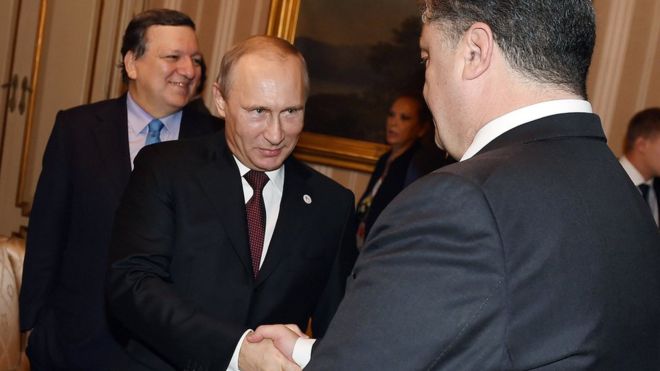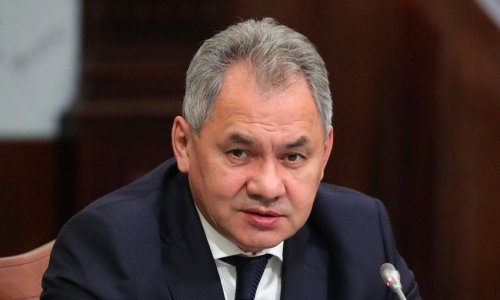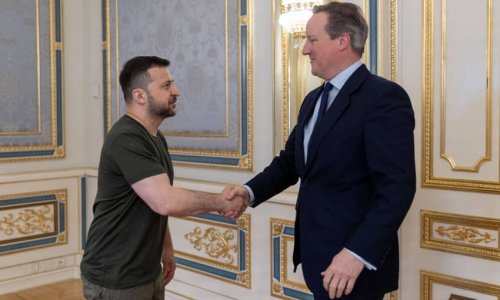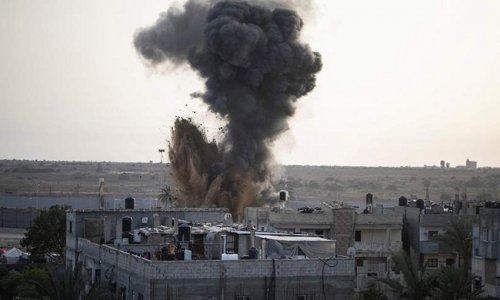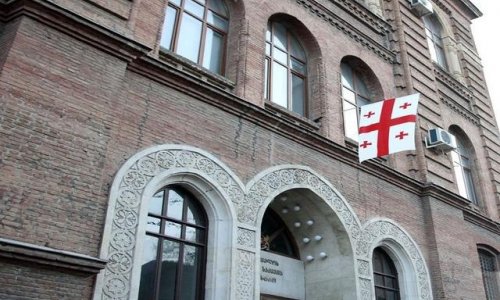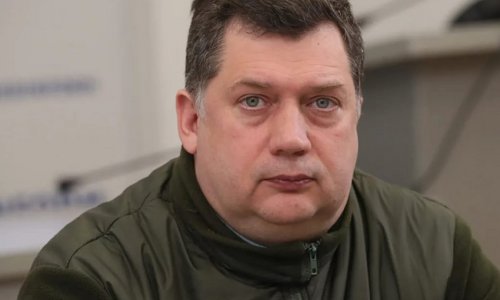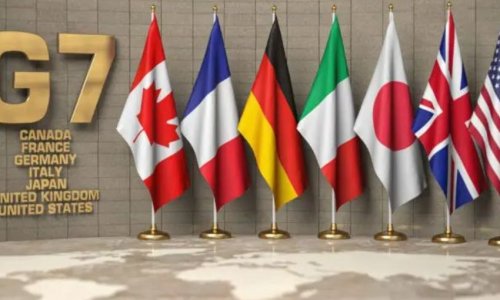The presidents of Russia and Ukraine are in Paris on Friday for the latest talks aimed at negotiating an end to the Ukrainian conflict.
After a month-long ceasefire, there were hopes this summit could bring a breakthrough in the peace process. But Russia's latest military intervention, this time in Syria, threatens to overshadow the event.
Just as when Russia annexed Crimea and backed armed insurgents in eastern Ukraine, the West is once again worrying about Vladimir Putin's motives and the consequences.
Germany's Chancellor Angela Merkel and French President Francois Hollande will both have the chance to question Mr Putin directly on his Syria strategy on Friday, when they sit down separately ahead of the main summit.
These are his first international encounters since ordering air strikes against so-called Islamic State (IS) in Syria, Russia's most dramatic intervention in the Middle East in decades.
Struggling to handle a flood of refugees from the region, the Europeans may want to know what Russian intervention might achieve in Syria, and how wide its scope is.
They could also get a feel for what Russia might expect in return, including perhaps a softening of the sanctions imposed over Ukraine.
And there's bound to be talk about avoiding overlap and accidents with other aircraft flying sorties over Syria, including those belonging to France.
And yet there have been signs of significant progress lately, indications that all sides favour a peace deal.
Kiev and pro-Moscow rebels finally agreed to withdraw more weapons from the front line, in a move that one senior rebel politician described as "the end of the war".
And critically, the latest ceasefire is the longest and least-violated to date.
"The decrease in military violence gives a cautious chance for a peaceful resolution," believes Sergei Markedonov of the Russian International Affairs Council.
"After two, three, four months' break, it would be harder to restart hostilities. That's why it's very important. I think it will give chance to move to the second stage of negotiations."
Agreeing "special status" for the occupied parts of eastern Ukraine is just one unresolved, contentious issue on the 13-point peace plan approved at the last international summit in February.
The next immediate flash point is local elections, scheduled for later this month. Kiev won't recognise the vote called by rebel leaders, in violation of Ukraine's constitution.
If those elections go ahead, European diplomats suggest the entire peace deal will be in jeopardy.
But in a key sign of shifting priorities, the Ukraine crisis hardly airs on Russian state TV now. It once dominated coverage, wall-to-wall. War correspondents who filed exclusively from eastern Ukraine have been redeployed to the Syrian frontline.
And talk of recreating Novorossiya - a Russian-controlled swathe of land sweeping down to Odessa - has stopped.
The Kremlin's latest project has been dubbed Novorossiriya instead, and hours of chat on state TV have been devoted to extolling Russia's intervention in support of Bashar al-Assad.
Force, not persuasion
The Kremlin knows it has to convince Russians that Syria is a worthy cause. So it proclaims that the fight is all about tackling jihadists, with IS.
"More than 2,000 people from Russia and the former USSR are engaged in Syrian hostilities," Sergei Markedonov says. "Imagine that part of them would return to Russia."
The concern is real. But security fears are clearly not the only motive at play here.
The Ukraine conflict left Russia increasingly isolated, politically. President Putin clearly wants the world to engage with him again, and Syria is a tool for that.
He wants to show that Russia can be a partner against a common threat, not just a problem. True to form, he's trying to achieve that by force rather than persuasion.
(BBC)
www.ann.az
Follow us !

